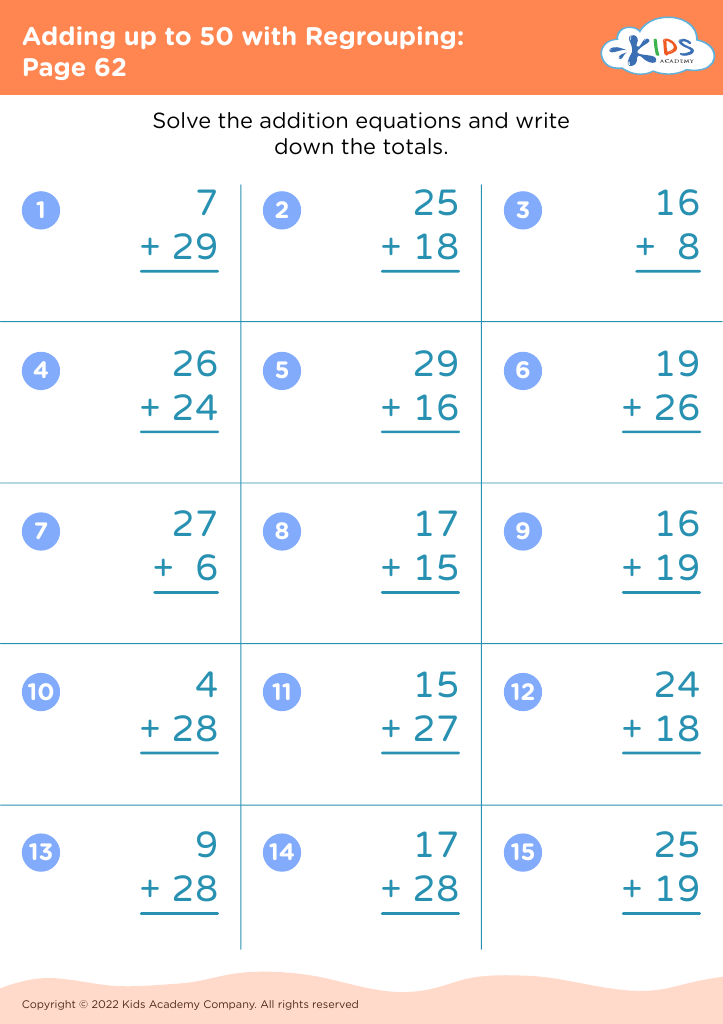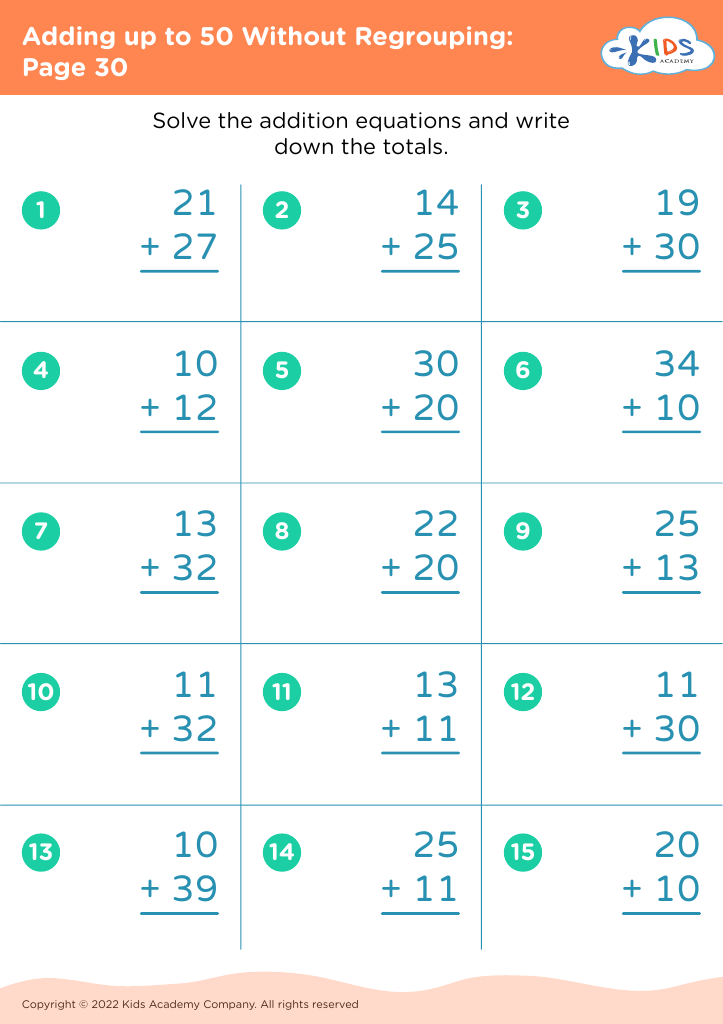Enhancing problem-solving abilities Adding up to 50 Worksheets for Ages 6-8
3 filtered results
-
From - To
Discover our engaging "Enhancing Problem-Solving Abilities: Adding Up to 50 Worksheets" designed for children ages 6-8. This collection of 100 printable worksheets aims to boost critical thinking and mathematical skills through fun and interactive exercises. Each worksheet encourages kids to tackle addition problems creatively, improving their ability to interpret and analyze challenges. Perfect for classroom or home use, these resources help young learners develop confidence in math while enhancing their overall problem-solving strategies. From simple sums to multi-step problems, our worksheets provide a comprehensive learning experience that prepares children for future success in math and everyday life!
Enhancing problem-solving abilities in children aged 6-8, especially through activities like adding up to 50, is vital for their cognitive and emotional development. At this age, children are in a crucial stage of learning where they grasp foundational mathematical concepts. This skill not only supports academic performance in math but also builds critical thinking and reasoning abilities that apply across all subjects and real-life situations.
Moreover, fostering problem-solving skills encourages resilience and perseverance. When children tackle challenges, such as reaching a target like 50, they learn to explore different strategies and approaches. This mindset enables them to overcome obstacles and view mistakes as learning opportunities rather than failures.
Parents and teachers play a significant role in this development. By incorporating engaging activities that challenge children to think critically and strategically, they nurture a love for learning. Encouraging cooperation and dialogue during problem-solving fosters communication skills and support systems among peers, which are essential for future collaborations.
Ultimately, enhancing problem-solving skills prepares children not only for academic success but for navigating everyday challenges throughout their lives, empowering them to become confident and capable individuals.
















